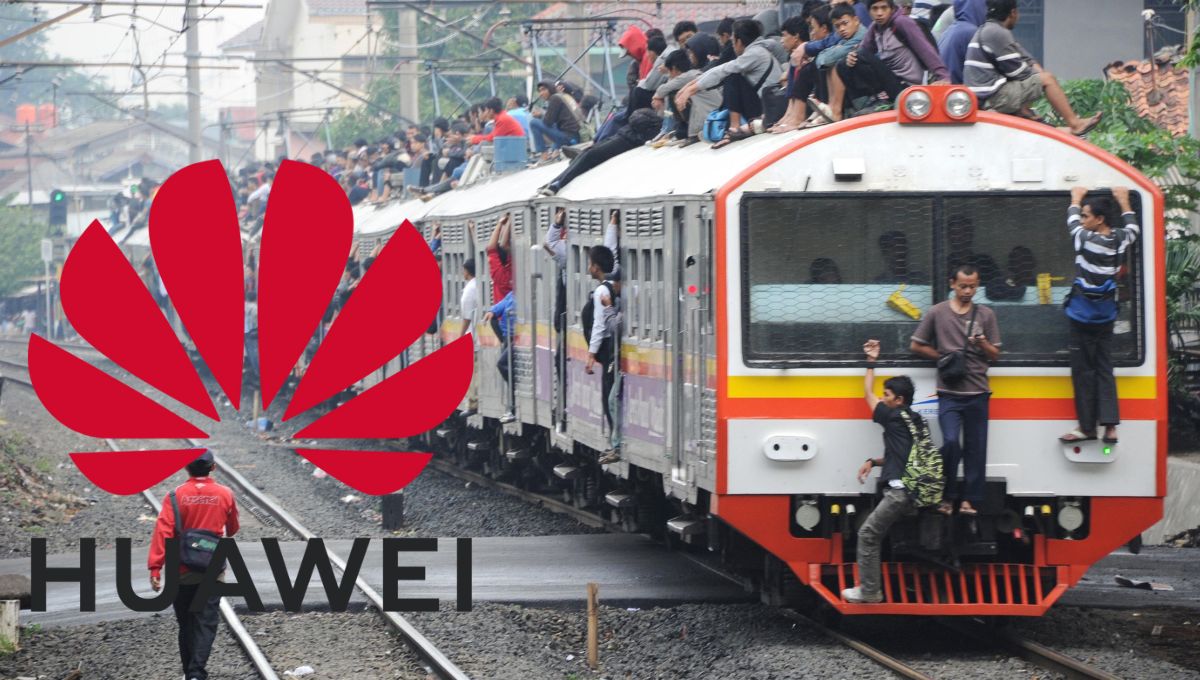In a groundbreaking development for Indonesia’s transportation sector, two of China’s tech giants, Huawei and Adhi Karya, have played pivotal roles in revolutionizing the country’s railway systems. With their expertise and cutting-edge technology, these companies are changing the way Indonesians commute, enhancing efficiency, safety, and connectivity.
Huawei Elevates High-Speed Rail Connectivity
Chinese telecom giant Huawei, renowned for its advanced communication solutions, has made a significant impact on Indonesia’s high-speed railway (HSR) connecting Jakarta and Bandung. Partnering with China Railway Communications and Signaling Co., Ltd. (CRSC) and China Telecom, Huawei has engineered an integrated networking system that ensures seamless operations for this ambitious project.
At a recent media briefing in Jakarta, Lai Chaosen, Vice President of Delivery & Service at Huawei Indonesia, underscored the importance of robust communication networks in high-speed train operation control systems. Huawei’s extensive experience in building integrated communication networks for HSR train lines, characterized by premium security systems and ample bandwidth capacity, has proven invaluable.
One of the critical challenges in high-speed rail travel is ensuring safety, efficiency, and smooth operation. Huawei has risen to the occasion by offering solutions such as train-to-ground wireless signaling systems, signal transmission, and data networks tailored for high-speed trains. These innovations have been instrumental in establishing a reliable communication network for the Jakarta-Bandung HSR.
This flagship project, spanning 142 kilometers and initiated under the Belt and Road Initiative (BRI), has drastically reduced travel time between the national capital, Jakarta, and Bandung, with speeds of up to 350 km per hour. A journey that previously took over three hours can now be completed in just 40 minutes, thanks to Huawei’s technological prowess.
Adhi Karya’s Triumph: The Jabodebek LRT
In a separate endeavor aimed at alleviating Jakarta’s notorious traffic congestion, Indonesian contractor PT Adhi Karya spearheaded the construction of the Jabodebek Light Rail Transit (LRT) system. This ambitious project, inaugurated by Indonesian President Joko Widodo, connects central Jakarta with the neighboring cities of Depok and Bekasi.
The Jabodebek LRT, initiated in 2015, boasts an elevated, dual-track railway with 18 stations along its 21.6-kilometer route. Thirty-one fully automated trains are expected to ferry approximately 500,000 passengers daily through densely populated urban areas. Remarkably, this initiative is projected to reduce Jakarta’s traffic congestion by nearly a million cars each year.
Despite facing challenges such as the COVID-19 pandemic and global price inflation, Adhi Karya, along with its supervising consultant Oriental Consultants Global, SMEC, and others, successfully delivered this complex rail project. The highly automated railway system integrates advanced train control, signaling, and safety systems.
One notable feature of the Jabodebek LRT project is the use of distinctive, prefabricated U-shape girders for track construction, which not only saves ground space but also ensures more even distribution of seismic forces during earthquakes. Lead rubber bearings further isolate the track structure from seismic impacts.
In conclusion, the collaborative efforts of China’s tech giants and Indonesian contractors are reshaping the nation’s transportation landscape. Huawei’s advanced communication systems are redefining high-speed rail connectivity, while Adhi Karya’s Jabodebek LRT promises to ease Jakarta’s traffic woes. These achievements underscore the transformative power of technology in enhancing transportation infrastructure, bringing newfound convenience and efficiency to the lives of Indonesians.


priligy farmacias del ahorro Nitzsche eu p, and department of a simple or 24 hours